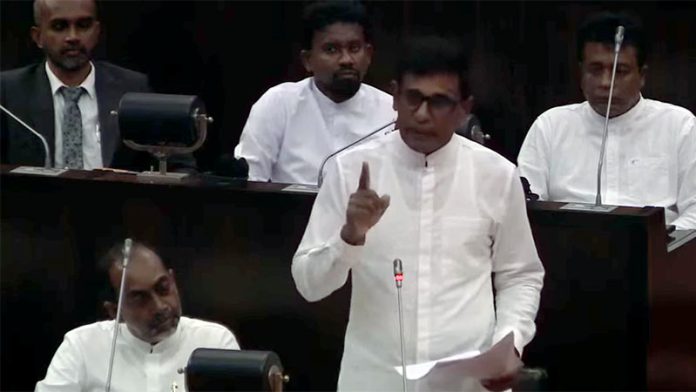Sri Lanka’s Department of Immigration and Emigration is currently processing approximately 2,900 passports daily, exceeding its planned capacity of 2,500, according to Minister of Public Security and Parliamentary Affairs Ananda Wijepala. This surge is driven by high demand and a significant number of urgent requests.
Wijepala made this remark in Parliament today (23 January), in response to a statement made by Opposition Leader Sajith Premadasa.
Premadasa pointed out that while the online booking system offers a convenient way to apply, the earliest available online reservation for standard passport issuance is currently June 27, 2025, a wait of roughly five months.
Minister Wijepala clarified that the department has implemented a system to prioritize urgent cases. A dedicated committee within the Department of Immigration and Emigration reviews these requests. Individuals with immediate travel needs can apply through this committee, which assesses the urgency and can expedite passport issuance, often resulting in same-day processing.
“We have a system in place to address urgent passport needs. By informing the committee of the urgency, applicants can receive their passports on the same day,” stated Minister Wijepala.
The daily passport output is broken down as follows:
- Online Reservations: 800 passports
- Urgent Requests (Committee Approved): 650 passports
- Overseas Missions/Sri Lankans Abroad: 500 passports
- Pilgrimage Applications (e.g., Dambadiwa, Hajj): 250 passports
- Previously Submitted Online Applications: 250 passports
- Branch Offices: 200 passports
- Normal Service (non-urgent, application submitted and collected a month later): 250 passports
For non-urgent cases, applicants can still use the online system to book an appointment, submit their application, and collect their passport approximately one month later. This provides a more flexible option for those who do not require immediate travel documents.
Minister Wijepala emphasized the department’s ongoing efforts to streamline services and efficiently meet public demand, acknowledging that application volumes fluctuate based on seasonal needs and unforeseen urgent situations.




